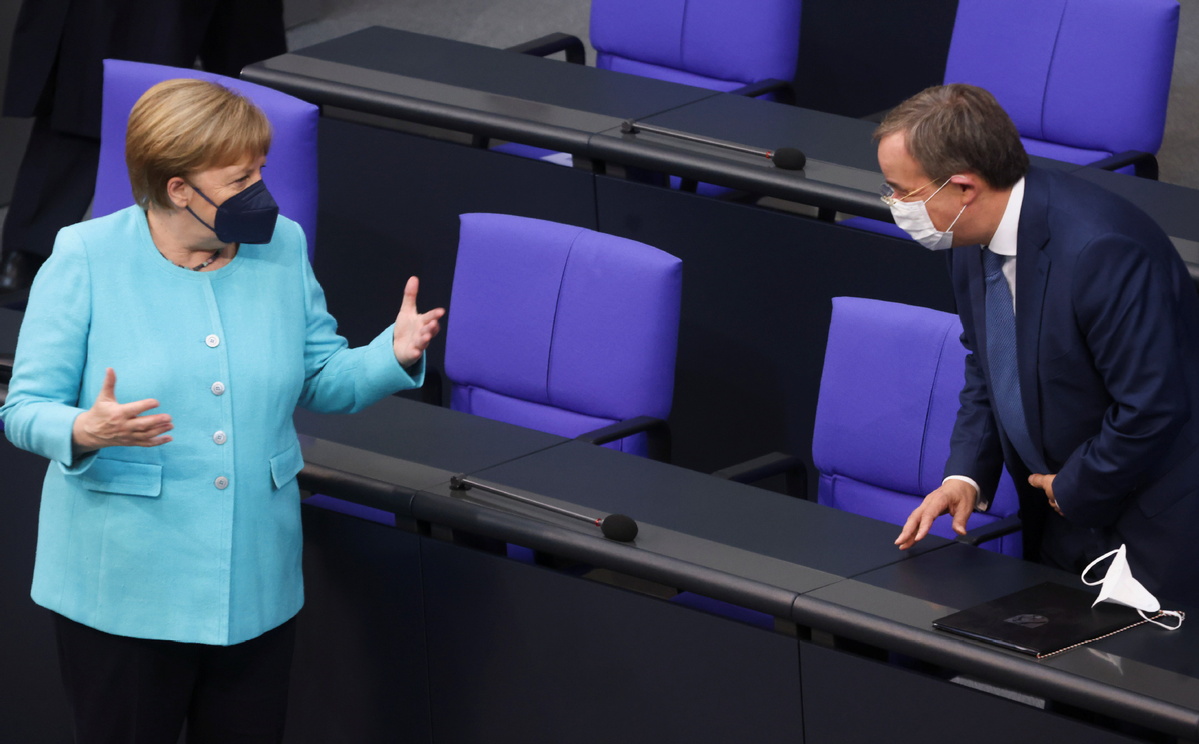Germany's big spenders challenge economic caution
By EARLE GALE in London | CHINA DAILY | Updated: 2021-08-18 09:08

Germany could ditch outgoing leader Angela Merkel's economic prudence after the Sept 26 federal election, if the pundits are right and a free-spending, three-party coalition ends up in charge.
With Olaf Scholz, Germany's finance minister, performing well in recent opinion polls, the United Kingdom's The Telegraph newspaper reports that his Social Democratic Party of Germany, or SPD, looks set to have a larger say in the next ruling coalition than it had as a junior member of Merkel's government.
Carsten Brzeski, chief economist at ING Germany, told the paper a coalition in which the SPD is a major player will inevitably introduce "more fiscal stimulus".
"It's only a matter of the magnitude," Brzeski said.
"The more important the conservative parties are in a coalition, the less there will be additional fiscal stimulus."
Merkel's center-right Christian Democratic Union party, or CDU, which is projected to land 30 percent of the vote, looks set to remain Germany's largest party but with less influence and a smaller role in the next government, pollsters suggest.
Other parties, including the Greens and the SPD, are expected to play larger roles, reported The Telegraph.
According to a Reuters report, it is even possible that the CDU will be fully ousted from government, with the next coalition comprising the SPD, the Greens and the business-friendly Free Democratic Party, although that scenario is unlikely.
The CDU, which has navigated the German economy through several crises since coming to power in 2005, is strongly opposed to the nation assuming debt in order to fund spending. But the Greens want to remove that so-called debt brake, which limits borrowing to 0.35 percent of GDP.
Merkel's ruling CDU could be powerless to stop such a move after having a slump in popularity recently, largely because of new party leader Armin Laschet, who was widely criticized after he was filmed laughing heartily while talking to aides during a visit to parts of Germany that had been ravaged by damaging floods.
The Guardian reported that Laschet and his party have lost around 10 points in opinion polls since the beginning of the year.
Postal voting underway
However, Reuters notes that the future of the next German government is actually already being decided, with postal voting having begun on Monday.
Carsten Nickel, an analyst at political risk consultancy Teneo, told Reuters that a high share of postal ballots should benefit parties like the Greens, which represent affluent, well-educated voters.
And the trend to vote by post is growing. At the last federal election in 2017, a record 28.6 percent of votes were cast that way-a total that is likely to be exceeded this year amid lingering worries about the novel coronavirus pandemic. That will worry the CDU, which traditionally attracts voters who prefer polling stations.
























